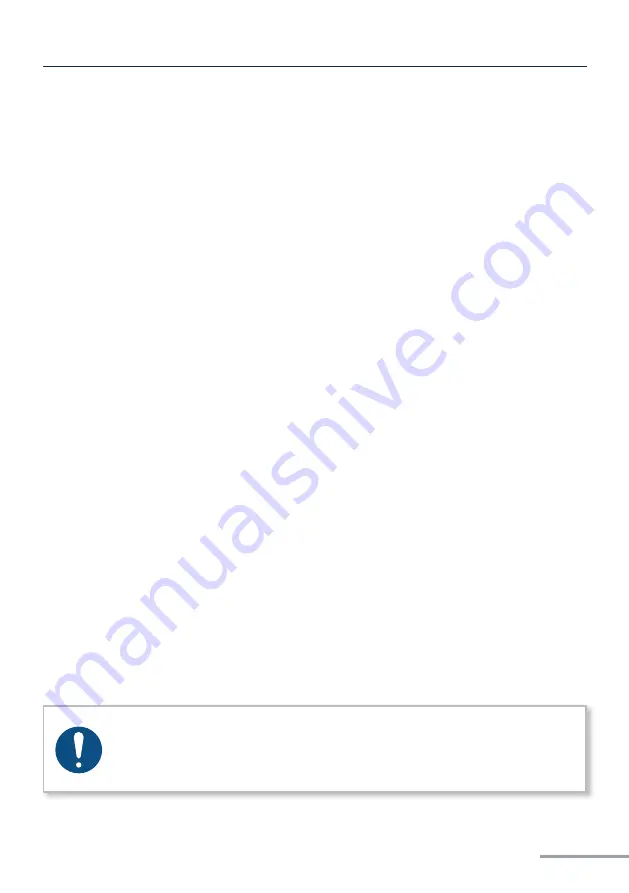
- 17 -
3 Important information about this tool
3.1
Handling the associated lithium ion battery
a)
Observe the operating instructions of the Li-Ion battery.
b)
If the battery will not be used over a longer period of time it may not remain on the
charger or on the machine.
If an interruption of work of more than 3 hours is expected
the battery must be removed from the tool. Otherwise it cannot be excluded that the
battery will be permanently damaged.
c)
For safety reasons the Li-Ion battery should not remain on the activated charger for
longer than 36 hours.
Remove the battery from the charger as soon as possible after
charging is complete.
d)
An empty battery should not be in contact with the machine or a charger discon
-
nected from the mains for a longer period of time.
In both instances low currents
flow which totally discharge the battery and can permanently damage it.
e)
Always charge the Li-Ion battery as soon as possible after use and do not store it
when empty.
If the battery is stored separately from the tool and the charger it’s ca
-
pacity will remain constant for a long period of time (loss approx. 5% per year).
f)
Always transport the battery separately from the machine if possible.
This prevents
accidental switching on of the machine as well as a total discharge of the battery.
g)
Do not subject the Lithium-Ion battery to high temperatures (above 50˚C) or direct
sunlight.
If the battery gets warmer than 50°C during operation (charging or discharg
-
ing) it must be immediately separated from the charger or the tool.
h)
Under extreme use or temperature conditions batteries may leak. In the event of a
leaky battery avoid contact with the skin or eyes.
The battery fluid is corrosive and
can cause chemical burns to tissue. If the fluid comes into contact with the skin it must
be washed immediately with soap and water and then rinsed with lemon juice or vin
-
egar. If the fluid comes into contact with the eyes they must be rinsed for at least 10
minutes with water and a doctor must be consulted immediately.
i)
Ensure that the Li-Ion battery does not fall or is not subjected to vibrations or shocks.
j)
Clean the battery contacts regularly with a cotton swab dipped in high-proof alcohol.
NOTE
Lithium-Ion batteries have almost no self-discharge and have no memory
effect. With proper and professional handling your tool will be reliably
supplied with high energy density for a long period of time.
















































